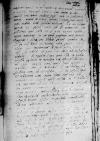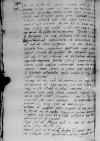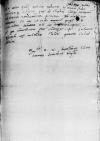List #1156
Ioannes SECUNDUS do [Ioannes DANTISCUS]Toledo, [1534]-04-28
Rękopiśmienne podstawy źródłowe:
Publikacje:
| ||||||||||||||
Tekst + aparat krytyczny + komentarz Zwykły tekst Tekst + komentarz Tekst + aparat krytyczny Ekscerpty dotyczące podróży Dantyszka
Salutem plurimam. Amplissime Praesul ac Domine merito mihi observatissime.
Quemadmodum in maximis Fortunae Naturaeque bonis habeo in eorum hominum amicitiam incidere posse, quibus ad suavitatem morum aliqua in re publica dignitas, copiaeque satis amplae quasi quidam vitae splendor accedunt, ut non voluptati tantum esse possint amicis, sed et ornamento, ita sollicitus esse soleo, ut si quas eiusmodi nactus essem amicitias (in quo satis propitiam mihi fortunam experior) summo eas studio fovere conarer, et si ita vel locorum vel temporum ratio ferret. Ut cum aliquo etiam incremento id facere non superinscribed⌈nonnon superinscribed⌉ possem, proximum mihi fuit adniti, ne quam omnino atteri aut consenescere viderem.
Ac equidem, si non prius illud, hoc quidem profecto posterius in amicitia tua assecutum hactenus me spero, tametsi semel tantum post discessum tuum a
Quod si forte nec litteras meas accepisti, interiectumque inter dulcissimam illam
Quid quaeris? Horribiles et sacros libellos, ut
Ego cum
Obiecta nobis erat nuper nescio ex quo rumore spes eiusmodi. Dii boni, qui tum erant amicorum hic tuorum plausus, qui vultus! Crede mihi, non est quisquam qui es(?) non ad solam tui mentionem exultet. Cum nuper in
Novarum hic rerum, quod litteris committendum sit, parum habemus. Ad
probably
Cupio scire, num statua, quam ex luto tibi finxeram, salva isthuc advecta sit. Carmen, quod ad te mitto written over am⌈amoo written over am⌉, querelam de morte optimi ac tui studiosissimi viri  BK, 230, p. 303
ad te mitto quod antehac audierim te magno studio undequaque colligere, quae ad illustrium virorum memoriam ab interitu vindicandam pertinent.
BK, 230, p. 303
ad te mitto quod antehac audierim te magno studio undequaque colligere, quae ad illustrium virorum memoriam ab interitu vindicandam pertinent.
Bene vale, vir ornatissime. Et nos, ut soles, amare perge. Dominus
Reverendae Dominationis Vestrae humillimus cliens


